Eudæmonic Transformation™ in your inbox…
Travel
COVID-19 and the Travel Industry: the Past, Present & Future
How does the Travel Industry innovate from here?
Jul 1, 2020

As we entered a new decade, many of us had high hopes and even higher expectations about our travel plans but were swiftly brought back down to earth with the presence of a global pandemic, COVID-19. Over half a year in, we’ve had time to adjust and are aware of how the pandemic has affected our day-to-day lives but many of us aren’t as clued up when it comes to the travel industry.
Rules and regulations are changing by the hour, every country is following different guidelines and each travel brand has adopted a different strategy for surviving in the post-pandemic landscape, however far in the future that may be. With every new announcement impacting the travel industry, the effects are felt with both brands and customers. As a result of this, we recently conducted a report on travel and tourism in a post-pandemic world that covers some of these key topics, providing insight into customer sentiment, brand activity and future trends.
However, although we are all too familiar with the word ‘uncertainty’; it has been used to describe almost everything in the past 6 months, we really are living in a time of uncertainty and so regular reflection, reporting and predicting is key. With the latest announcement, it is apparent that lockdown is lifting in the UK. In preparation for the major changes in the travel industry, now is the ideal time to reflect on what’s happened so far, the present day and predict what’s to come.
The Past
The Implementation of Travel Bans
It wasn’t until March that travel bans were globally implemented. Many countries restricted their borders and enforced strict regulations including mandatory self-isolation periods, testing and quarantining for incoming travellers. Despite months of speculation, with airlines and customers hopeful that things would ‘blow over’ within months, this proved not to be the case. In May, TUI cancelled all foreign holidays until 1st July, leaving many hopeful tourists disappointed.
Whilst many were understanding of the necessary cancellation, it was as expected, not a smooth process. Customers took to social media to express their dissatisfaction with the airline's management.
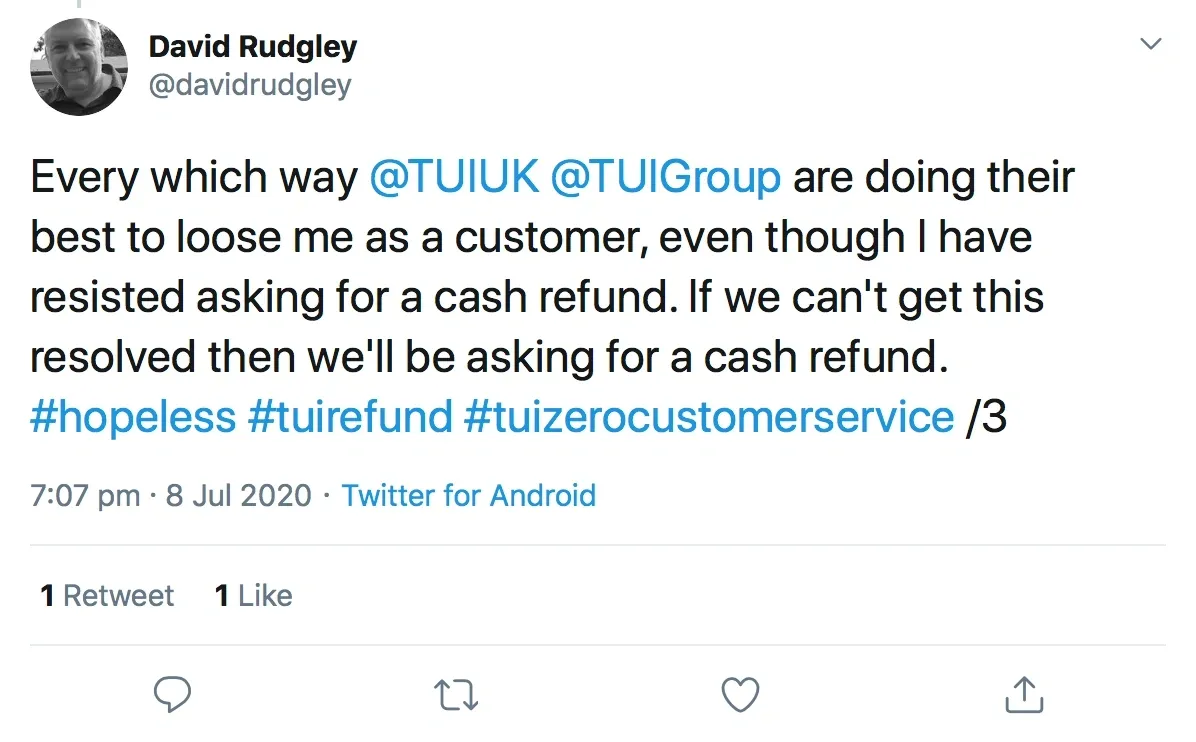
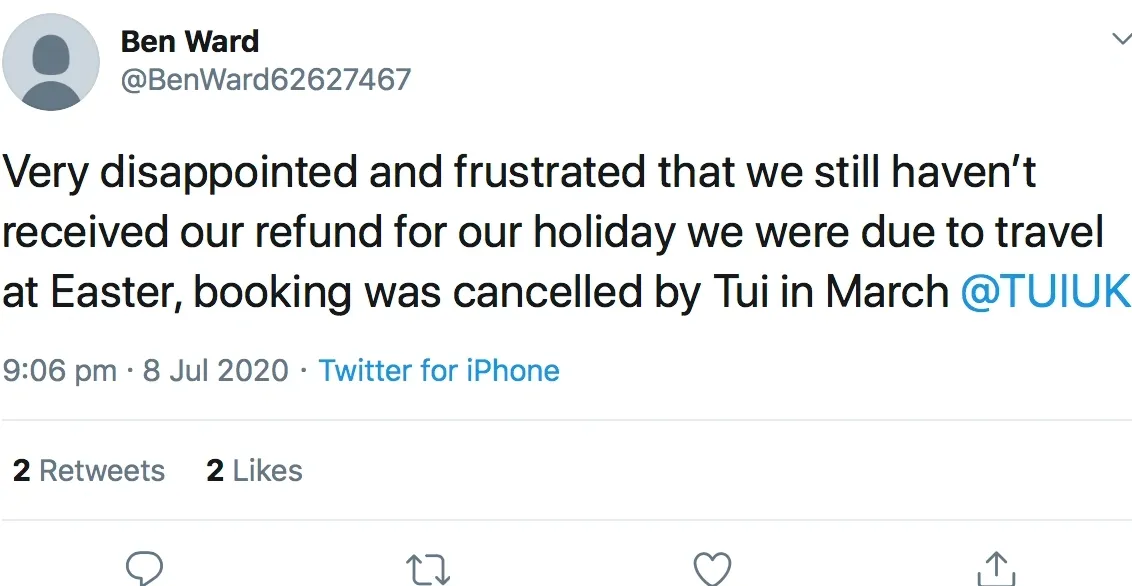
For some, it was the handling of refunds and lack of information that caused loss of trust in the brand. On the other hand, no matter how TUI responded or how fast they processed refunds, for some customers, it was never going to be enough. Around the same time TUI cancelled their flights, a study was conducted that found more than a fifth of people in England believed COVID-19 to be a hoax. With those insights in mind, it becomes apparent as to why the cancellation of holidays ignited such a fire within customers. In addition to the 8,000 predicted job losses from the TUI group, further damage was caused to their reputation and brand image, mirrored in other airlines that had to take similar action.
UK Lockdown
With travelling abroad no longer an option, the idea of UK based holidays and entertainment was looking more appealing by the day. However, by the end of March, all non-essential shops, food establishments and hotels were advised by the UK government to close. This caused another wave of disappointment and for many, this was the moment that the situation became a little too real. But what did the UK lockdown mean for brands and their customers?
Despite the earlier findings that a sizeable portion of the UK believed COVID-19 to be a hoax, according to a survey carried out by YouGov in April, 88% of the British public were not comfortable with the idea of lockdown being lifted so early. With most of the public accepting that travel and tourism should and will be put on hold, many of us got creative with our means of enjoying summer.
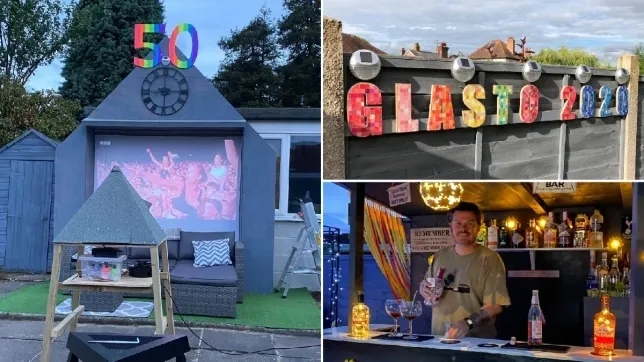
With street parties, picnics and ‘garden festivals’ becoming the new norm, this opened a new window of opportunity for brands. The travel and tourism industry was put on hold, but customers’ desire for entertainment, culture and fun was everything but, so how did businesses capitalise on this?
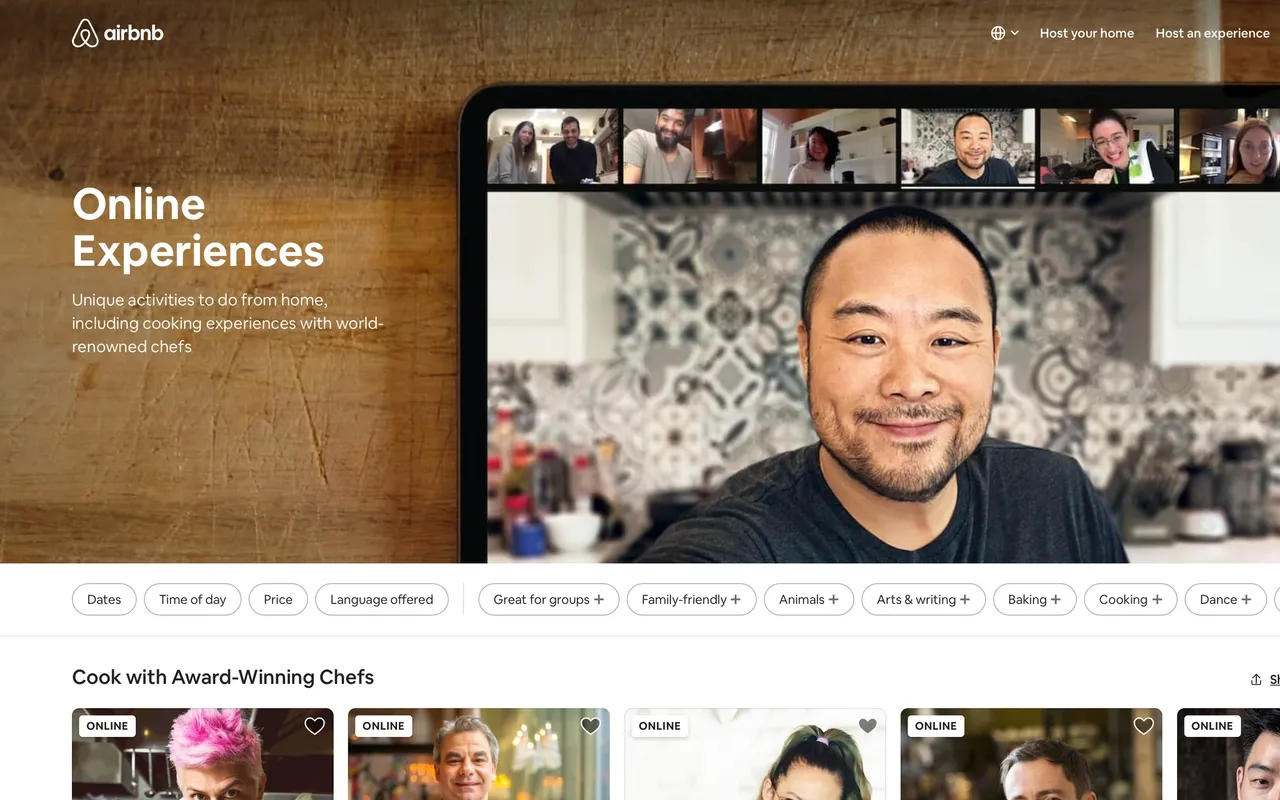
Airbnb took to hosting virtual experiences to engage their customer base and give their hosts a way of generating income whilst in lockdown. From Harry Potter themed tours of London and Edinburgh, to meditation with a Japanese Buddhist Monk, Airbnb were able to offer the culture and experience so many of us crave when travelling but from the comfort of our homes.
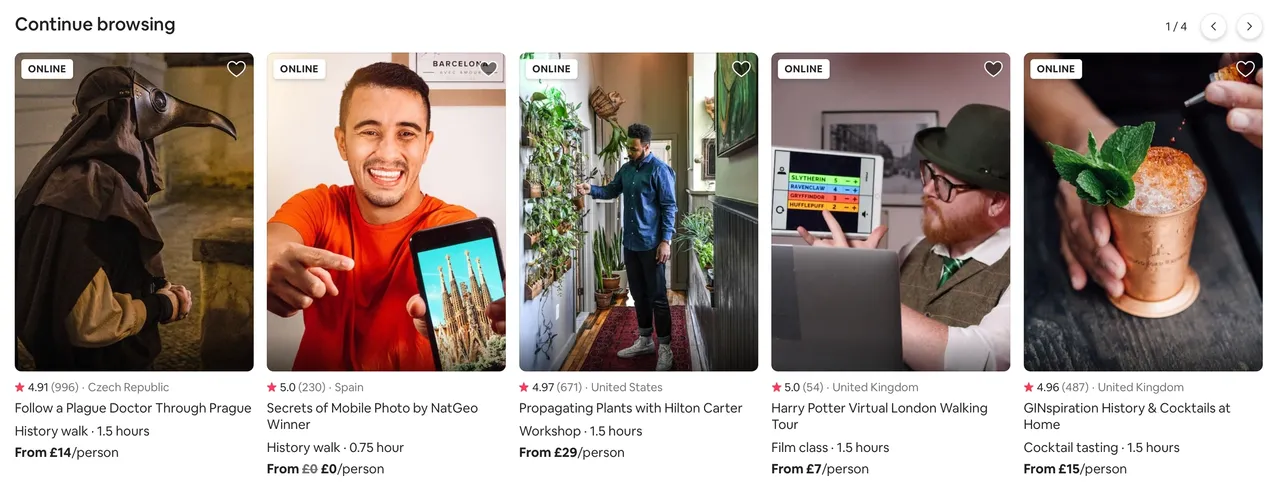
After some damaging press at the beginning of lockdown, suggesting the brand was defying lockdown rules, their online experience initiative was successful in regaining trust and positive sentiment from its hosts. Although, the earnings made from virtual experiences are unlikely to compete with the reported £20 million hosts made the first day of reopening on 4th July 2020. Nonetheless, this initiative was an effective move for brand image, reassuring hosts that they are of value to Airbnb and giving customers a reason to engage with the brand, even when it was not operating as usual.
The Present
As we’re all too aware, living in a global pandemic means daily changes. Consequently, we recognise that anything we state as ‘the present’ is soon to be a thing of the past. Nonetheless, a thorough analysis of what’s happening right now is vital to make informed conclusions about the impact of COVID-19 on the travel and tourism industry.
The research we conducted found that most are waiting for government guidance before making any travel plans. Additionally, news reports and the travel industry must be clearly aligned in their reassurance to convince customers to book future travel. Until then, one-third of bookers aren’t yet ready to book a holiday and would ideally wait until they've seen other people go away and come home safely. The latter of which could mean waiting until 2021 to book a holiday that doesn’t take place 2022.
Uncertainty surrounding international travel is still rife. Combined with bookers’ reluctance to travel, it’s unlikely that the travel and tourism industry will return to normal any time soon. However, with the 4th July announcement, quite a fitting date for it, hotels, bed and breakfasts, holiday homes, campsites, caravan parks and boarding houses will be able to reopen. This announcement lends itself to a spike in ‘staycations’.
Staycations
A staycation, is a holiday in which the tourist visits a location close to home. With the impact of COVID-19, we have seen an uprising of people exploring more of what’s on their doorstep. Search volumes alone show this: ‘Cornwall caravan holidays’ search volumes are up 400% and ‘holiday cottages with hot tubs’ are up 300%. For brands in this industry, such as caravan rental services, holiday park and campsite owners, this is an easy win. However, the increased demand for staycations has been recognised by brands in every corner of the travel and tourism industry.
Expedia for example, have prioritised ‘easy escapes’ and ‘holiday rentals’ at the forefront of their homepage, aligning with this demand. Booking.com has implemented a similar strategy, promoting ‘UK staycations’ and UK accommodation.
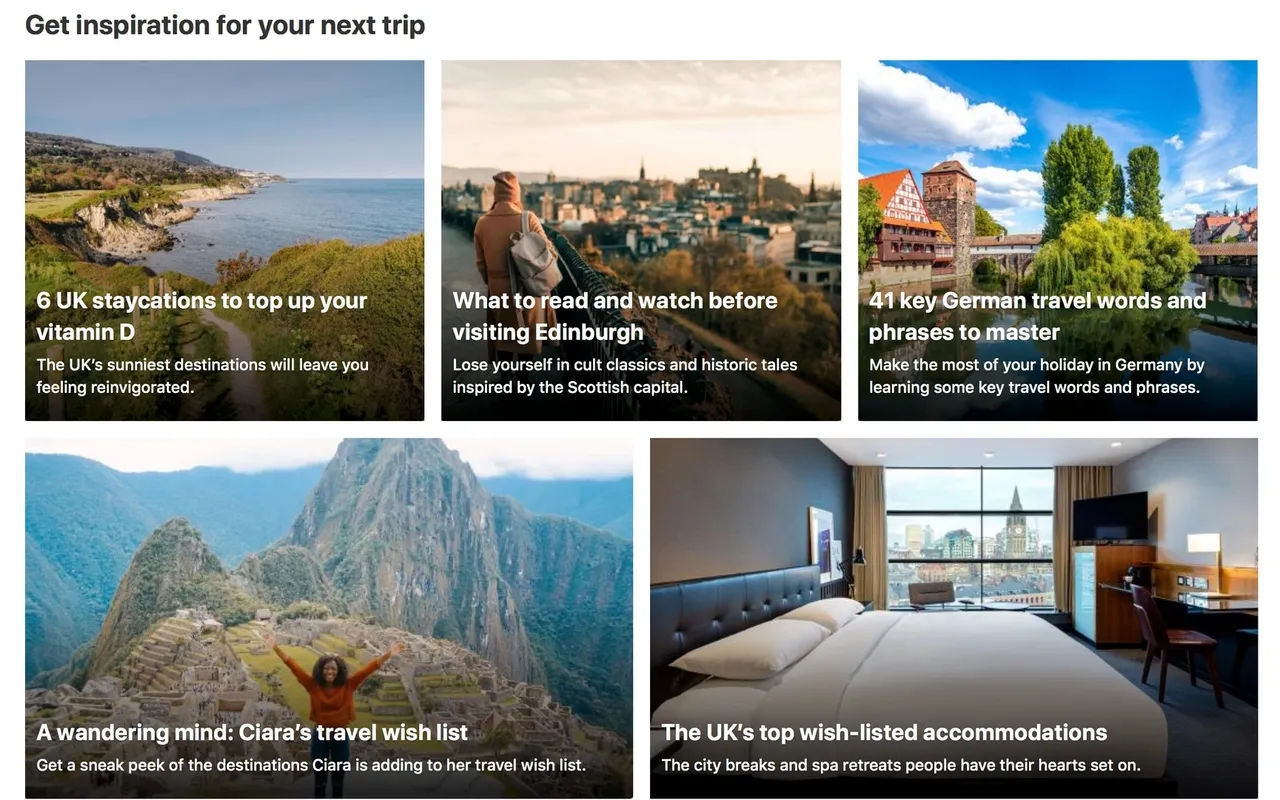
Directly responding to the shift in consumer mindset is an effective move for these brands. But it leaves us with one burning question: what does this mean for brands that rely on international flights and travel?
Airline Response to COVID-19
Knowing the customer sentiment towards foreign holidays and the uprise in staycations, it would be fair to predict that airlines will be taking drastic action. Whether it be adopting a new strategy, changing marketing tactics or offering a new service, with many mixed opinions surrounding the safety of international travel, the last thing we expected was for business as usual. However, a quick look at the websites of the major players in UK travel shows just that.
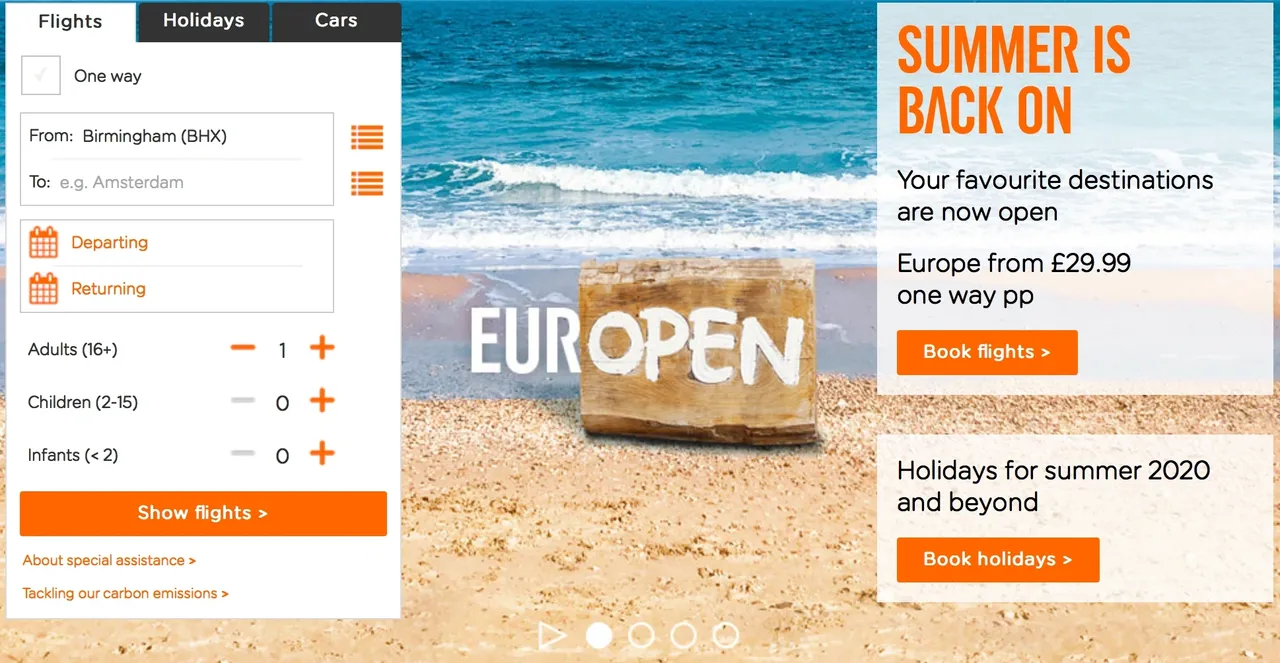
The recurring theme within the messaging used by each airline is ‘summer is back’. EasyJet has even gone further by utilising ‘#Europening’ across their social media channels. This is echoed throughout TUIs ‘welcome back’ campaign that seeks to spark a sense of nostalgia and warmth by reminding viewers of the joys of a holiday. The sense of elation and positivity each brand is promoting would have many thinking there was never a pandemic at all, but we know that is unfortunately not the case.
Using positivity as a marketing tactic has historically been effective. It often encourages customers to connect emotionally with brands and in times of uncertainty and fear, it can offer a sense of escapism and hope. It is therefore understandable why brands whose USP is decreasing in demand, have turned to intangible and emotional means of targeting customers. This is further backed by a survey conducted by Trip Advisor that found 95% of consumers feel brands should focus on positive messaging during this time.
However, the decrease in demand may not be forever. The Foreign & Commonwealth Office has updated their advisory against ‘all but essential’ travel which is great news for the travel industry but it doesn’t necessarily change customer sentiment towards international travel. For some, this will be the green light they’ve been waiting for to book the long-awaited holiday. But in most cases, this won’t be enough. The uncertainty and what some may suggest as a relaxed attitude the UK has taken regarding lockdown, has meant that many of us will need a lot more reassurance before booking. As mentioned, for some, that reassurance will come in the form of waiting for others to be ‘guinea pigs’ for international travel.
Whether or not this announcement will be enough for travel brands to recover from the damage that COVID-19 has caused for revenue, image, reputation and trust is unclear. However, we can make some informed predictions about the future of the travel industry.
The Future
What’s Next for Customers?
Our recent report highlights that the customer type will influence their sentiment towards travel and what will be the catalyst for them to book future travel. With some waiting on friends and family and others relying on the government and travel industry, it is clear that the return to normal holiday booking will be staggered and by no means smooth. Furthermore, with a potential increase in travel costs to cover the loss in revenue that the pandemic caused, combined with a decrease in disposable income caused by job losses and furlough schemes, there is likely to be further delays.
In the meantime, we predict that interest in staycations and domestic travel will continue to rise. There will undoubtedly be a portion of the UK that after hearing the announcement, will head straight to their favourite holiday site to book a flight. Brands that are prioritising the positive messaging will be able to capture this market. This, however, will not be the case for all potential customers and we believe brands have a lot of work to do.
What’s Next for Brands?
Although the theme of positivity amongst brands may be effective, they should not shy away from being transparent and addressing the questions that customers need for reassurance. It was made apparent in our research that the one thing everyone is waiting for is reassurance, whoever that may be from. Customers will want to know exactly what measures each brand is taking to ensure their safety, from PPE, to social distancing, to remote bookings. If brands focus too heavily on promoting the ‘summer dream’, they run the risk of alienating those that are still worried and apprehensive about travelling. There is a balance to be found between positivity and reality, the brands that can capture this may see some worthwhile benefits.
Furthermore, our report discussed the idea of brands pushing the reset button. The unexpected halt in travel and tourism that has lasted longer than many of us expected, has created the opportunity for brands to start fresh and reinvent themselves. As we’ve seen, some of the key players in the airline industry have turned away from this, relying heavily on things ‘going back to normal’. However, with brands such as Airbnb, we have seen what could be the beginning of brands looking towards new strategies, targeting new segments and diversifying their offering. This is especially necessary to stand out in a crowded market. Consumer mindsets have accelerated during lockdown, any ‘future trends’ such as sustainability that were predicted to increase in importance over the next few years are now at the forefront.
This a constantly evolving situation and with the latest announcement, we could be about to see a pivot. The government announcement and stimulation packages such as the Kickstart Training scheme is what many customers say they have been waiting for. Now this has been delivered, the divide between those willing to travel and those that are not will become apparent. As will which brand strategies are most effective at reaching customers.
Our report analyses this topic in further detail, breaking down each well informed prediction for the future. We are constantly researching and analysing the latest industry news to create valuable insight for the brands we work with. Get in touch today and ensure you are prepared with the tools and knowledge to thrive in a post-pandemic landscape.
